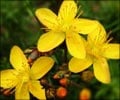The community needs to be educated about potential risks of alternative and herbal medicines, in particular black cohosh, according to an article in the latest Medical Journal of Australia.
Black cohosh is a herbal remedy used by millions of women worldwide for the relief of menopausal symptoms. In Australia, more than 200 listed medicines containing black cohosh are available without prescription.Dr Elizabeth Chow and her coauthors from Flinders Medical Centre in Adelaide report a 51-year-old Australian woman who developed liver failure and required a liver transplant while taking black cohosh.
According to the authors, there have been seven previous case reports of severe hepatotoxicity associated with black cohosh in the past decade. Five of these patients also required liver transplantation.
“Two safety reviews have found black cohosh extract to be well tolerated and adverse events to be rare when it is taken for up to six months,” Dr Chow says.
“However, the seven case reports of severe hepatotoxicity potentially associated with black cohosh use in the past decade raise concern.”
Dr Chow recommends that further clinical trials are needed to provide definitive information about the safety of black cohosh, in addition to tighter regulations and public education campaigns.
Advertisement
“The public needs to be educated about the potential risks of alternative and herbal medications.
Advertisement
“We recommend that liver function be checked before and during use of black cohosh.”
The Medical Journal of Australia is a publication of the Australian Medical Association.
Source-AMA
SRM/N








